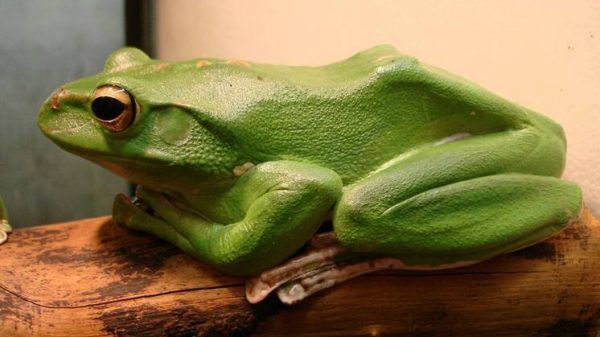
Redefine Meat's steak
When Neil Nugent boarded a plane to San Francisco to test a range of plant-based burgers that "bleed" like the real thing, he was more than a little sceptical.
Still, as Iceland’s head of product development, Nugent decided to take a punt.
“Within a couple of months, those products became part of a whole range,” he says. “Then Wicked Kitchen came out, and Plant Kitchen came out. All the retailers started jumping on it.”
Suddenly, it “went from being hard to find someone to make these things, to every single one of the food manufacturers having made space for it”.
“I hadn’t seen it coming. Even now, I can’t believe how much demand there is for these vegan products.”
Customers have been lapping up alternative meat burgers, sausages and meatballs. Tesco, for instance, reported a 500pc year on year spike in sales of Plant Chef Vegan Burgers this January.
Now, however, those behind the products are turning their attention to a more complex problem.
Instead of processed meats, easier to replicate with soy, peas, brown rice and beets, they are going after the “holy grail” of the artificial meat industry: synthetic “whole meats” that look and taste exactly like the real thing.
“Beefsteak, pork loin, chicken breast, they’re what has been missing in the sector,” says Giuseppe Scionti, the boss of Novameat.
“There’s a real change happening,” agrees Liz Specht, director of science and technology at The Good Food Institute. “Companies are transitioning from making plant-based products to appeal to a very small niche consumer category of vegetarians or vegans, towards really trying to appeal to genuine meat eaters who are just looking to substitute meat out for a few meals every week.”
Creating whole cuts of meat may be something many in the alternative meat industry are racing to achieve, but the methods they’re adopting are very different.
Cash is pouring into different pockets of the market, with investors backing everything from companies developing “plant-based” meat alternatives to those working on “cultivated meats”, where cells are grown in a lab.
Figures for the Good Food Institute found that, in the first six months of last year, companies in the alternative meat industry had attracted $1.5bn (£1.2bn) of venture capital investment, almost double what they had secured for the whole of 2019. According to Barclays, the market for alternative meat could reach $140bn by 2029.
To create the ‘holy grail’ of fake meats, 3D printing is seen as one of the most promising technologies, with companies able to define a marbling pattern and have different input streams which are higher in fat or protein.
Israeli start-up Redefine Meat, for example, can precisely replicate each fibre using "Alt-Muscle", made up of plant protein, "Alt-Fat", using plant fat, and "Alt-Blood", using natural colours and flavours.
Barcelona-based Novameat, meanwhile, has developed its own “micro extrusion” system which takes ingredients such as peas, beetroot juice and seaweed, and turns them into steaks and pork chunks.
AT A GLANCE | The meat pretenders
Up until this point, Novameat’s work has been small-scale, but Scionti says the company has recently developed new machines which are able to produce 100kg per hour, a major breakthrough which could help bring prices down.
“The cost of production is super important,” says Scionti. “If you can’t do it at scale, then you can’t achieve price parity, and price parity is needed to move forwards the alternative meat industry. Otherwise it just won’t go beyond the burger.”
Researchers are also looking at how they can pull and align plant proteins to get them to form the muscle structures in the context of a thick product. A few years ago, this idea was one which was being looked at in universities, but not commercially.
Now, companies including Unilever are working to break those concepts out of academia and help turn them into real-world technologies which can create ultra-realistic faux meat cuts. “Growing” meat has also emerged as one potential route, with scientists at the University of Tokyo having succeeded in developing chunks with the ‘same texture and feel as steak’, using techniques similar to those used in regenerative medicine.
The question, however, is whether such investments are worthwhile. While most in the sector agree more vegan options should be offered to consumers, not only for the health benefits but also the environmental advantages, there is some scepticism over the need to replicate meat, especially when it comes to things like “bleeding” steaks.
“Surely, bleeding by itself is not a desirable attribute,” says Charles Spence, who runs Oxford University’s Crossmodal Research Laboratory. “It just doesn’t make much sense to me.”
What’s more, fooling customers into thinking they are eating real meat is out of the question. “These things will have to be clearly labelled, and soon as people know that something isn’t meat, suddenly it will taste different in a way it didn’t when it was a completely blind test,” says Spence.
Any little discrepancy between real meal and artificial meat, in terms of the texture or taste, could prove an instant turn-off. “When it comes to meat products, we see them as more likely to poison us and more likely to contain microbes, so we’re generally more sensitive to slight changes, than we are with say a carrot,” explains Spence.
This may be a significant hurdle to overcome, but companies are clearly undeterred. Major brands are making huge plays, including Nestle and Unilever. Experts say market leader Impossible Burger may have the expertise to steal a lead on others.
Yet, the timeline for when faux steaks will go on sale is one of much debate within the sector. Some, such as British start-up Moving Mountains, say they have been working on this for years already. “The technology just isn’t there yet,” shrugs boss Simeon Van der Molen.
“I’d be very surprised if someone launches a steak very soon. People can try, but it’s a really hard problem. Will it be launched in the next five years? I severely doubt it.”
If Van der Molen is right, it may yet be some time before Britons are chowing down on a vegan T-bone. But as companies rush to market, there is much at stake for those who can get their alternative meat right.






















































Свежие комментарии